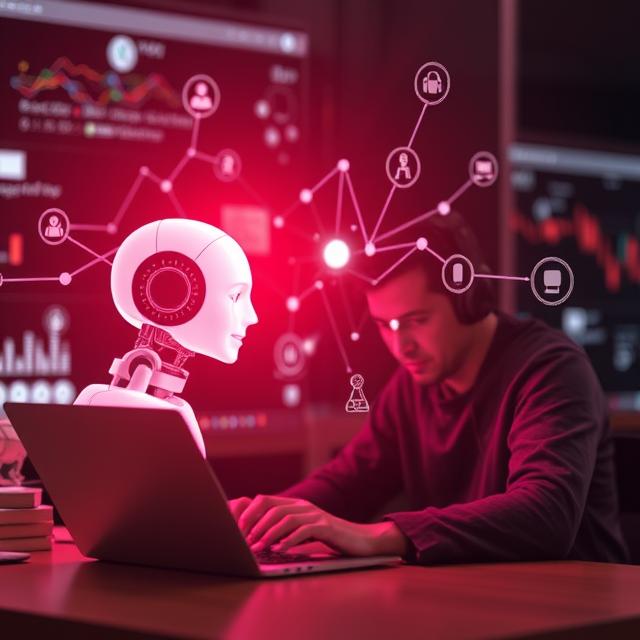Artificial Intelligence is revolutionizing industries worldwide, and the education sector is not lagging behind. EdTech software companies are in fact applying AI to revolutionize the way students learn. By utilizing personalized learning technology, these businesses are developing intelligent platforms that can learn and tailor the experience to the level, ability, and areas of need of each learner. This is not only augmenting academic achievements but also helping teachers provide more accurate and effective instruction.
The Emergence of AI in Education
Education technology has evolved significantly over the last few years, from fixed digital books and video lessons. Platforms powered by AI now monitor student activity and adapt content in real-time. The systems can detect knowledge gaps, suggest specific exercises, and even forecast future performance. With EdTech software companies competing to provide the best, AI has become a differentiator.
Through examining big data sets, AI assists businesses in tuning their algorithms and enhancing learner performance. Each click, each quiz result, and each lesson invested are feedstocks that are fed into a cycle. It is this cycle which enables personalized learning technology to make constant tweaks to content delivery so learners remain engaged and on task.
Personalization Through Data and Feedback
The future of adaptive learning technology that can be tailored is its power to leverage real-time data. Rather than a uniform size for all courses, learners are able to receive dynamic lessons that meet their specifications. These technologies observe past responses, rate of learning, and content format preferences to provide content best suited.
For instance, a struggling student with fractions can be given additional visual aids and practice problems, whereas a quicker student can be exposed to more advanced content in advance. Personalization in this way reduces levels of frustration, increases confidence, and consequently results in improved retention.
Leading EdTech software companies are incorporating increasingly more dashboards that allow instructors to track student success. Instructors can act immediately when they see potential trouble, maximizing instruction and effects.
Supporting Diverse Learning Styles
AI solutions are particularly capable of handling different learning styles. Auditory learners learn through text being read to them, and visual learners learn through diagrammatic representation and animation. Tactile learners might learn even more efficiently through simulation or gamified lessons. With adaptive learning software, students no longer have to be forced into the one-fits-all model; rather, the platform itself learns about them.
This adaptability is the reason that EdTech software companies are investing heavily in adaptive testing and multimedia content creation. These experiences also assist in including students with special needs or language differences since they promote inclusivity and equity of access to good education.

How AI Is Driving Personalized Learning in EdTech Software Companies
The Role of AI in Teacher Empowerment
While the AI computers process information, it never replaces teachers, it enables them. By taking over routine administrative work such as the grading of quizzes or monitoring attendance, AI leaves more room for teachers to teach and mentor.
Additionally, EdTech technology businesses enable teachers to create individualized lesson plans, monitor classroom performance patterns, and adapt pedagogical methods. With these insights, underpinned by personalized learning technology, decision-making is enhanced and professional development is upgraded.
And teachers are becoming increasingly comfortable with using such platforms, particularly due to the simplification of user interfaces. With growing digital literacy among educators, the combination of human instinct and machine is becoming even more collaborative.
Scalability and Global Reach
Scalability is perhaps the greatest benefit of AI in EdTech. A solution that can be applied to a school in California can also be applied to students in Kenya or India with very little modification. That scalability enables EdTech technology businesses to provide low-cost, affordable solutions globally.
The adaptability of personalized learning technology makes sure that learners in underprivileged communities are able to receive quality content based on their own pace. This is particularly imperative in areas where shortages of teachers or inadequate infrastructure restrict traditional forms of learning.
Behind mobile apps, cloud infrastructure, and multi-language interfaces, AI-based EdTech is building bridges where there are walls. These technologies are bridging the gap in global education and evening the playing field for millions.
AI-powered personalized learning technology from EdTech software companies is transforming education through data-driven, and student-centered platforms.
How Ultra-Wideband Sensors is Improving Indoor GPS Positioning
The Future of Holographic Display for Remote Collaboration Software



